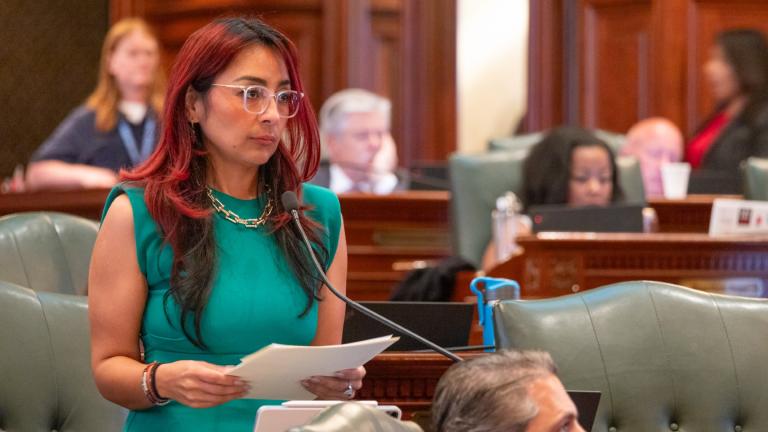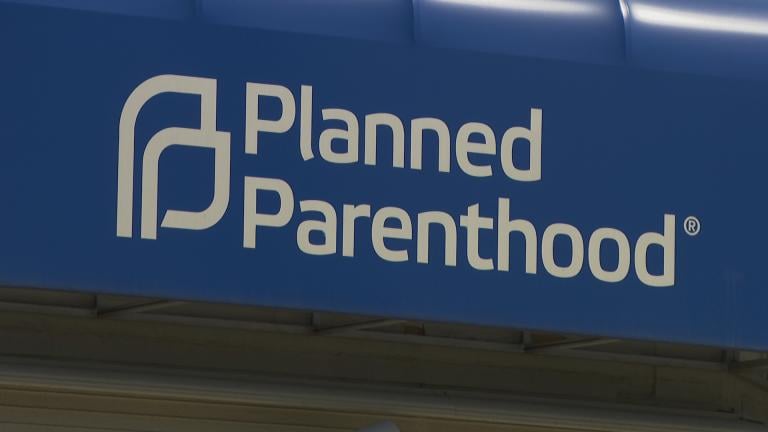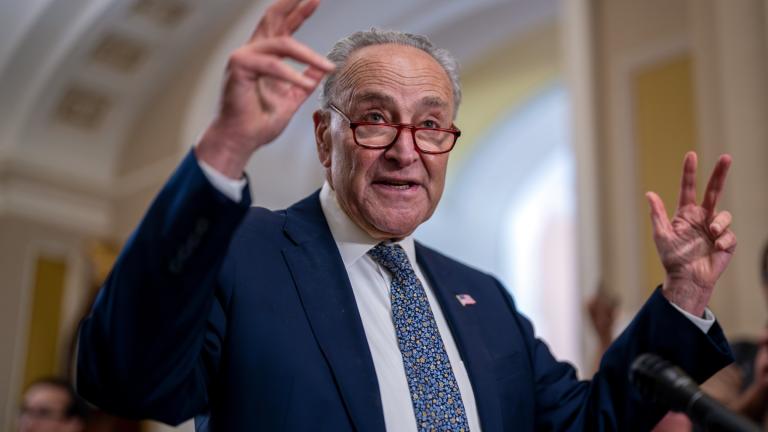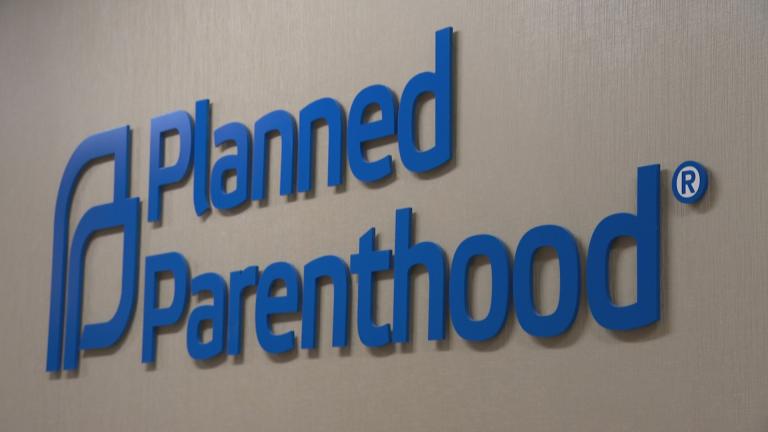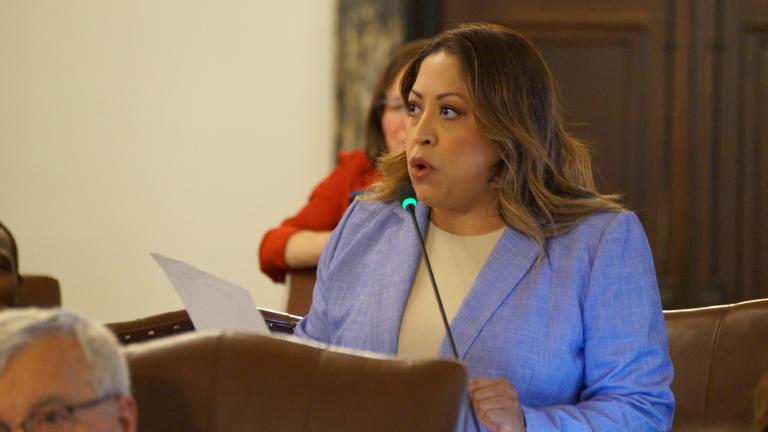 Gov. J.B. Pritzker is pictured on the state House floor on Thursday, April 18, 2024. (Jerry Nowicki / Capitol News Illinois)
Gov. J.B. Pritzker is pictured on the state House floor on Thursday, April 18, 2024. (Jerry Nowicki / Capitol News Illinois)
Illinois voters will not be asked this year whether the right to an abortion should be enshrined in the state constitution, with advocates’ efforts to pass an amendment now on the backburner.
State legislators would need to vote by May 5 to place a question on the November ballot, and key players indicate there’s no effort to do so despite earlier talk at state government’s highest levels after Roe v. Wade was dismantled by the U.S. Supreme Court almost two years ago.
Winning a constitutional amendment campaign is time intensive and expensive, said state Rep. Kelly Cassidy, a Chicago Democrat who has been at the forefront of passing pro-abortion rights measures.
That time, energy and funding could make a material difference in states without the reproductive safeguards in place in Illinois, she said.
“We are sitting here on pretty good laws, we’ve got time, we can let other states have that runway and have that space,” Cassidy said.
For a proposed amendment to be adopted, Illinois voters must approve it with a three-fifths majority of those voting on the amendment question or a simple majority of all votes that were cast in the election.
Guaranteeing access to abortions will be on the ballot in a handful of states, like Florida, where a ban on the procedure past six weeks into pregnancy is set to take effect in May.
Shortly after the U.S. Supreme Court’s Dobbs decision, abortion rights advocates and political leaders raised the prospect of amending the state constitution so that no matter what happened down the line in Springfield and at the national level, the procedure would be legal in Illinois.
House Speaker Emanuel “Chris” Welch contemplated it, and Gov. J.B. Pritkzer publicly declared passing a constitutional amendment a goal for his second term.
“The right to privacy and bodily autonomy demand that we establish a constitutional protection for reproductive rights in Illinois,” Pritzker said in his January 2023 inauguration speech. “The extremists still want to take away a woman’s right to choose, and I don’t intend to let them. That’s why yet again, on women’s rights, Illinois will lead.”
But Illinois is not on the path to make it happen this election cycle.
Only two constitutional amendments (SJRCA0008 and HJRCA0016) relating to abortion have been introduced. Neither have inched forward in the legislative process, and both are unlikely to – they’re sponsored by minority-party Republicans and seek to reverse a law signed by Pritzker in 2021 that frees minors from having to give notice to a parent or guardian before having an abortion.
Since the Dobbs decision, Pritzker – who often publicly reminisces about accompanying his late mother to abortion rights rallies when he was a child – has solidified his spot at the vanguard of the national movement.
In late October, he launched a national nonprofit, Think Big America, which on its debut described itself as a group that “builds on the progress that Governor Pritzker’s administration and its allies have made in Illinois and takes the fight to right wing extremists all across the country.”
Think Big America contributed to a campaign that last November resulted in a constitutional amendment enshrining the right to an abortion in Ohio
Heading into this November’s election, Think Big America is sending money to Arizona, Florida, Montana and Nevada – states where questions to constitutionally codify reproductive rights are expected to be on the ballot.
It’s also possible the organization will get involved with a ballot initiative in Maryland.
“Thanks to Governor Pritzker and pro-choice advocates’ leadership, Illinois is the most pro-choice state in the nation and he founded Think Big America to help ensure women across the country have the same rights and freedoms,” said Christina Amestoy, the group’s spokeswoman. “That’s why we’re focusing on expanding and protecting abortion access in states where far-right extremists have made it their mission to eliminate it. As we have in other states, we will continue to work with activists on the ground in Illinois to prevent the threat of local and national abortion bans.”
The organization, which does not have to disclose its funders, was exclusively backed by the independently-wealthy Pritzker at its launch. So far, it has spent $250,000 in Arizona and $1 million in Nevada.
“Our calculations are: Where is there a policy on the ground that we are supportive of, that we want to help get on the ballot and help get over the finish line in November,” Amestoy said.
Amestoy said Think Big America is also dedicated to protecting the country from a national abortion ban.
“While our focus is supporting policy on the ground that makes sure women are not second-class citizens, we’re not naive to the real risk of a national abortion ban if Donald Trump and fellow anti-choice candidates win back the White House and Congress,” Amestoy said.
While Think Big has not been active in Illinois, Pritzker spends heavily to support Democrats within the state, at all levels of government.
Abortion rights advocates say dedicating finite resources toward passage of a constitutional amendment in Illinois would be a waste at this point, given laws already on the books. Chief among them is the Reproductive Health Act, which Pritzker first signed in 2019 and then expanded with in 2023, after the fall of Roe.
The RHA “sets forth the fundamental rights of individuals to make autonomous decisions about one’s own reproductive health, including the fundamental right to use or refuse reproductive health care.”
It explicitly protects assisted reproductive technology, shields patients from out-of-state and mandates insurance coverage for abortion care and birth control.
Stephanie Vojas, a lobbyist and mom who worked to include in-vitro fertilization protections in the RHA, said the law means Illinois is “very well protected.”
Still, laws can be changed at the whims of a majority of the legislature and governor.
Constitutional clauses provide more surety.
To wit, more than 300 new laws took effect in January, whereas since Illinois’ constitution took effect more than a half century ago, only 26 potential amendments have been put before voters, 16 of which passed.
It’s intentionally more difficult to add, or delete, a constitutional amendment, meaning rights with constitutional guarantees are better sealed from political whims and changes in the makeup of the state legislative, judicial and executive branches.
“A constitutional amendment that unequivocally protects the right to access abortion would make it possible for all people to access the sexual and reproductive health care they need without interference from the government or outside forces,” Planned Parenthood Illinois Action president Jennifer Welch said in a statement.
Not all Democrats have voted for bills on Planned Parenthood’s legislative agenda – for example, handfuls of Democrats didn’t back the 2021 repeal of an older Illinois law that had required notification to parents before anyone under age 18 could get an abortion.
Still, the party’s lock on power in Springfield and reproductive rights’ advocates tally of wins, leaves Illinois in little danger of losing abortion protections, as even prominent abortion critics admit.
Former Republican state representative and 2018 candidate for governor Jeanne Ives said Illinois’ political dynamic, with Democrats’ lopsided majority, makes a constitutional amendment unnecessary.
“Why do they need a constructional amendment in the state of Illinois when they’ve gotten everything they wanted and more when it comes to abortion laws? What else can they do?” Ives said. “They’ve already enshrined a right to an abortion legally, through state statute, and they have aggressively supported abortion in numerous other ways to the point where we are funding an abortion hotline, we’re funding travel to the state to get an abortion, we’re funding additional training for abortionists themselves. There’s nothing left for them to do. They don’t need a constitutional amendment in Illinois.”
Democrats, who hold a 2 to 1 majority in the state legislature and have a 5-2 advantage on the state’s high court, are “very comfortable that they are going to retain their supermajorities in the legislature, so they feel no threat whatsoever that anything will be dismantled as it pertains to abortion law,” Ives said.
Ives is a leader of the Parents Matter Coalition, and is working to get a non-binding question on the November ballot that would poll voters on whether they believe Illinois should require parental permission before a minor can have a non-emergency medical procedure, including abortions, and before anyone under 18 could undergo gender therapy or counseling without a parents’ sign-off.
“Parents want to know and consent to intrusive medical procedures when it comes to children,” Ives said.
She said the coalition is still working to collect the necessary 500,000 signatures that would put the question before voters, but admits to facing obstacles trying to reach that target.
Note: This article was updated to clarify that Think Big does not donate to individual candidates.
Contact Amanda Vinicky: @AmandaVinicky | [email protected]

